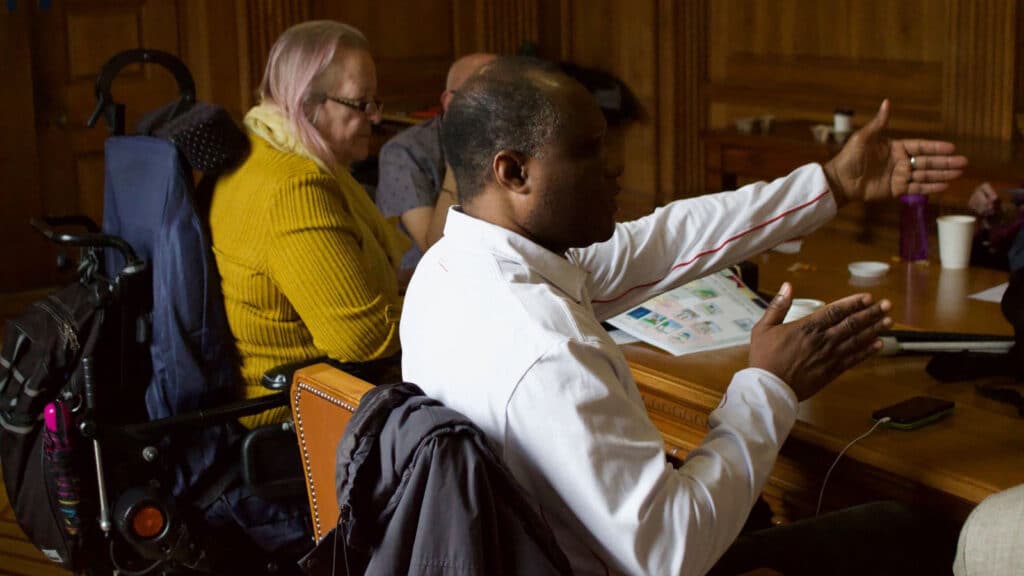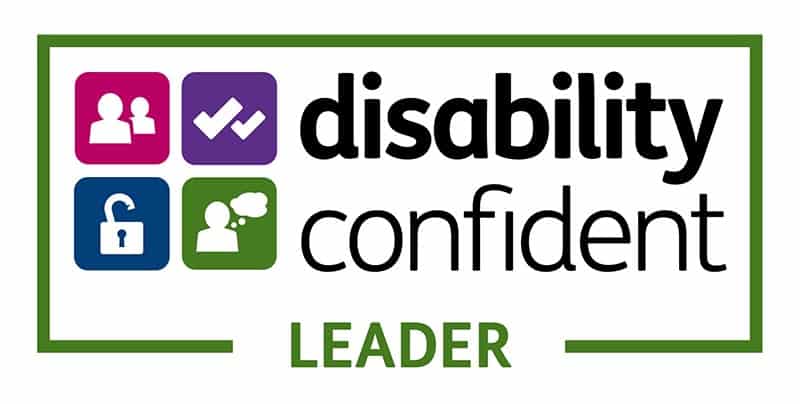
It’s a positive outcome for local Disabled People’s Organisations (DPOs) in Bristol who have been campaigning against Bristol City Council’s proposed Fair and Affordable Care Policy, a policy which was lacking in more ways than one. The draft policy proposed a cost saving solution which, on face value, could have forced Bristol Disabled residents into care homes if their in-home support was not deemed ‘best value’, not only causing distress to individuals and families, but failing to recognise Disabled people’s rights to independent living.
The proposed policy was severely inadequate in meeting Disabled people’s rights under the Care Act, and proved another manifestation of the drastic underfunding of local authorities all over the country. We are pleased that the policy has been scrapped, and look forward to working in partnership with Bristol City Council to find alternative and positive system solutions that work for all involved.
A problematic policy
The Fair and Affordable Care Policy, proposed in draft by the City Council in 2023, caused significant concern amongst our community for valuing cost saving measures over and above the rights to choice and independence for Disabled people. The policy stated that Disabled people could be offered residential or care home placement if this was of better value to the City Council than the costs of funding in-home support packages, warning that ‘exceptions’ to this policy would ‘likely to be rare’. It also said that the council would only offer a budget in the form of a Direct Payment ‘up to the amount of the cost-effective option’, leaving Disabled people to top up Care Package costs themselves if they chose to continue living independently at home. This policy wording implied that decisions would ultimately prioritise balancing budgets above the wishes and needs of Disabled people, a shocking and disturbing prospect to many of us.
WECIL recognised immediately that the policy was in conflict with the Equality Act 2010 and the Care Act, specifically section 1 which includes matters concerning an individual’s control of their day-today life, suitability of living accommodation and requires that local authorities consider each person’s views, wishes and beliefs. The policy was also at risk of unlawful interference with other human rights law, such as a person’s Article 8 Right to privacy under the European Convention on Human Rights, and breach of Article 19 of the UN Convention on the Rights of Persons with Disabilities (UNCRPD); this states the requirement to ensure Disabled people ‘have the opportunity to choose their place of residence’ and have access to ‘a range of in-home, residential and other community support services’. The shortcomings of this policy are the result of the significant public funding cuts from Central Government to local authorities nationwide. Bristol City Council is facing a budget hole of £17m, which will rise £32m in years to come, a strain that has left the Bristol City Council Adult Social Care Directorate in serious budget deficit. It is no surprise that the increasing pressure on care services is reflected in policies like this one which pose risk to the lives, choice and independence of Disabled people. But, cost saving solutions need to, and can be, found that don’t cut essential services and come at the even greater cost of Disabled rights to independent living.

A win for DPO campaigns
At WECIL, we raised concerns with the original draft as soon as it was proposed, encouraging and supporting the Disabled community to have their say during the public consultation period. We contributed a lot of work to get the draft policy overturned, including commissioning legal advice from Shirin Marker of Bindmans Solicitors, who has successfully challenged the legality of the UK Government’s Disability Strategy. We took this to a meeting with Bristol City Council’s then Director of Adult Social Care and Acting Principal Social Worker about the policy, which was also attended by WECIL staff, Trustees, and Members many who were in receipt of Direct Payments to manage their support needs and feared what the proposed policy could mean to their Care Packages. These first-hand accounts from those with lived experience helped show the genuine fears that the Disabled community has about their rights to independent living being taken away under the proposed policy. The solidity of our legal advice coupled with the first-hand voice of our Disabled community led to a successful meeting, and we are pleased that the current draft has since been formally dropped as a result of the combined efforts from a number of local DPOs.
We want to extend our praise and congratulations to local DPO Bristol Reclaiming Independent Living (BRIL) and to the DPO Forum for their excellent work in getting this issue to prominent local and national attention in the media. BRIL have done an amazing job campaigning tirelessly against the proposed policy, and WECIL stands in solidarity with their efforts. BRIL called out the policy as ‘fundamentally flawed, likely unlawful, and would cause misery to many Disabled people and their family and friends in Bristol’. They also questioned the consultation process and flaws in the easy read version of the document, calling for the policy to be revoked and reviewed. BRIL founder Mark Williams commented that the document was ‘very alarming’ but that ‘we will fight it all the way’, a testament to their efforts. Disability Rights UK also criticised the policy as ‘absolutely unacceptable’ and helped by writing letters to the Mayor of Bristol and Leader of Bristol’s Green Party Group. It is collectively that we, as DPOs, have successfully fought for our rights and it is brilliant news that our voices are being heard and listened to.
What next?
Bristol City Council have agreed to engage in co-production with the local and national Disabled community to create a revised version. We insisted on a number of key amendments, clarifications, insertions and guidance to the application of the legislation that would need to be included in a revised policy. We have also asked that the Council continue to follow the guidance of the Care Act, and assess and record the real needs of all Disabled people without the influence of cost saving measures to allow them to clearly understand the level of unmet need; this will mean they can establish the right amount of funding that is necessary to support independent living, giving them accurate reports to bring to government to help them advocate for better funding.
Councillor Helen Holland, Cabinet Member for Adult Social Care and Integrated Care System, acknowledged in a letter to Bristol-based Disabled People’s Organisations and Disabled campaigners the ‘strong concerns that some Disabled people in our city and nationally have raised’ during consultation, and wrote that ‘the work that individuals and organisations have put into responding to us in recent months will not be wasted’. She commented that ‘work has commenced with Disabled people and other local stakeholders to develop a co-produced vision for Adult Social Care in Bristol’; WECIL will commit to successfully working on this panel, alongside BRIL and other organisations to support the council in doing this. We understand the challenge of chronic underfunding that the council are faced with, and actively look forward to working together to find system solutions. We are here to work collaboratively with local authorities to help people receive the care and support they need, whilst respecting their rights, choices and preferences and making the best use of available resources. We may be living in difficult times, but protecting the right to independent and inclusive living is something that we stand by and will help others to do so too.

Quote from our Chair, Ruth Pickersgill MBE:
‘As Disabled people, the Trustees of WECIL felt it was really important to take a strong stand and to oppose the Draft Fair and Affordable Policy that Bristol City Council wanted to bring in (see our statement here). We knew from the Disabled people we work with, and all the national Disabled People’s Organisations who responded, the strength of feeling opposing this policy, and how scared people were becoming that they might be forced into residential care as a result of it. We really welcome the fact that the Council has listened to our views and has withdrawn the policy. We also recognise that this whole situation has come to a head due to the totally inadequate funding the Government gives to Councils to deliver Adult Care services. We are keen to work with the new stakeholder group to try to identify ways to deliver social care with the reduced funding that is available, whilst upholding our rights to choice and control over our support and living arrangements.’
Have your voice heard
If you want your voice heard and to have a say on issues like this that affect Disabled lives, then we would love for you to get involved with WECIL. We have a number of groups and opportunities for you to influence policy, speak up on a national level and campaign for Disabled rights, such as our Know Your Rights group and Listening Partnership. For more information or if you have any questions, then please get in touch.



